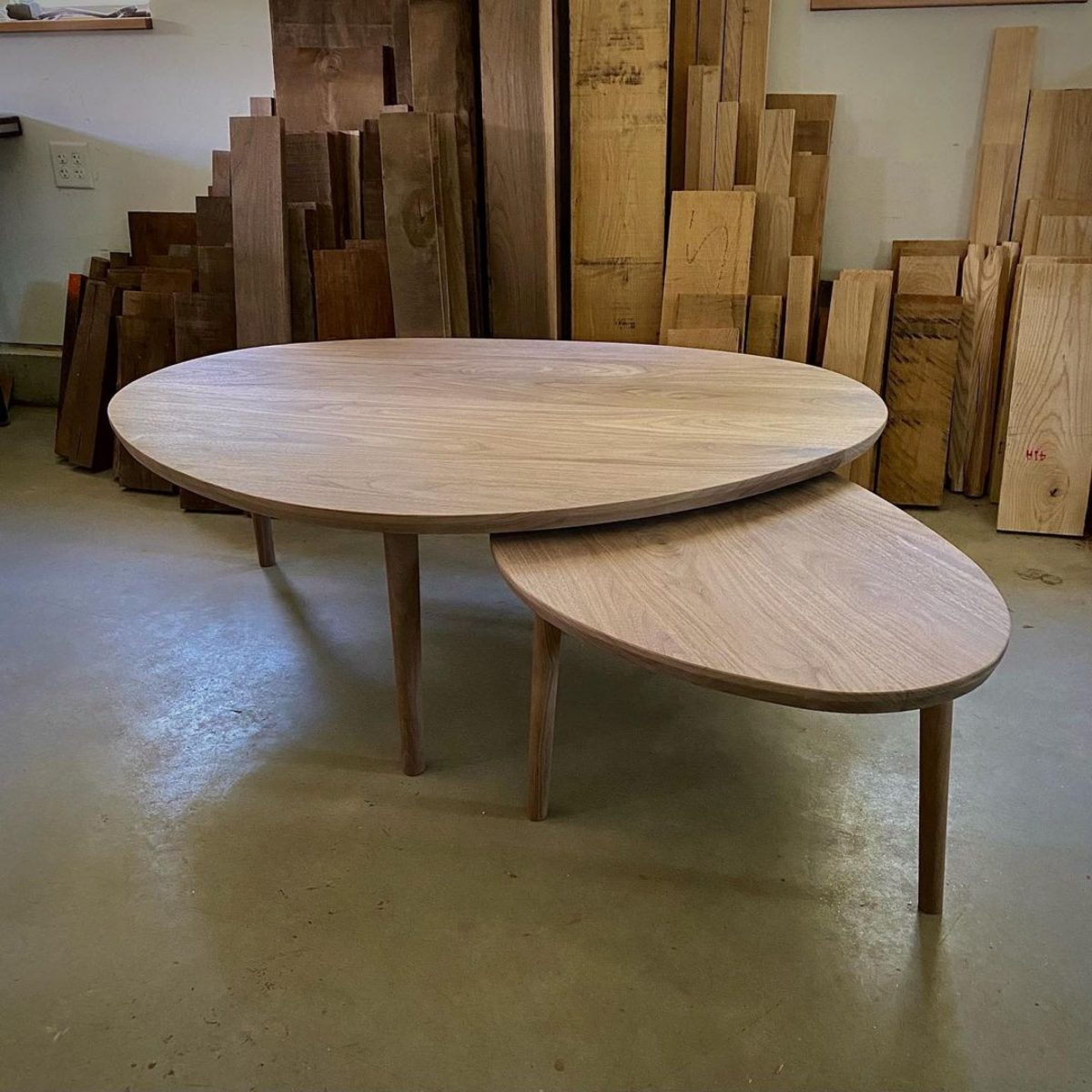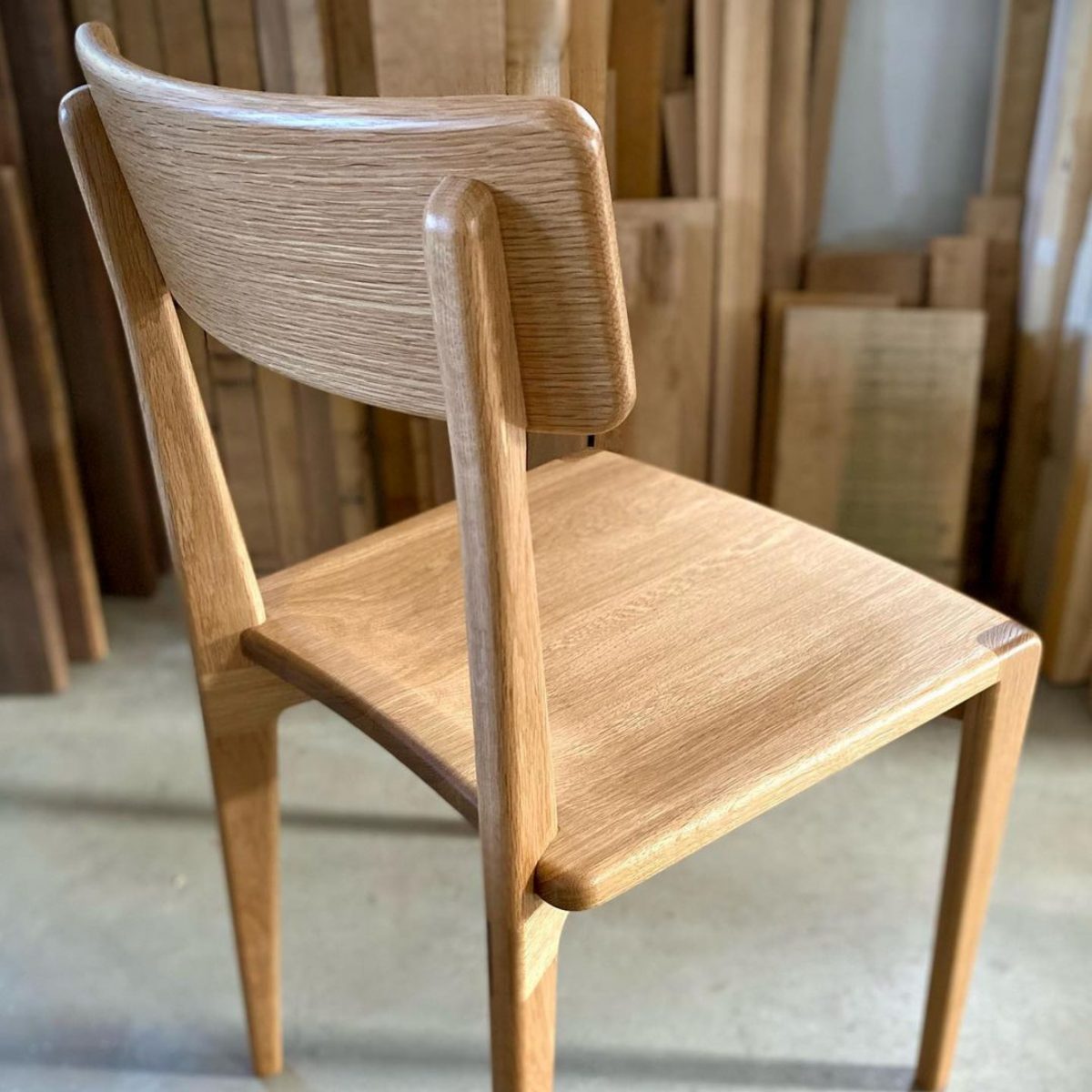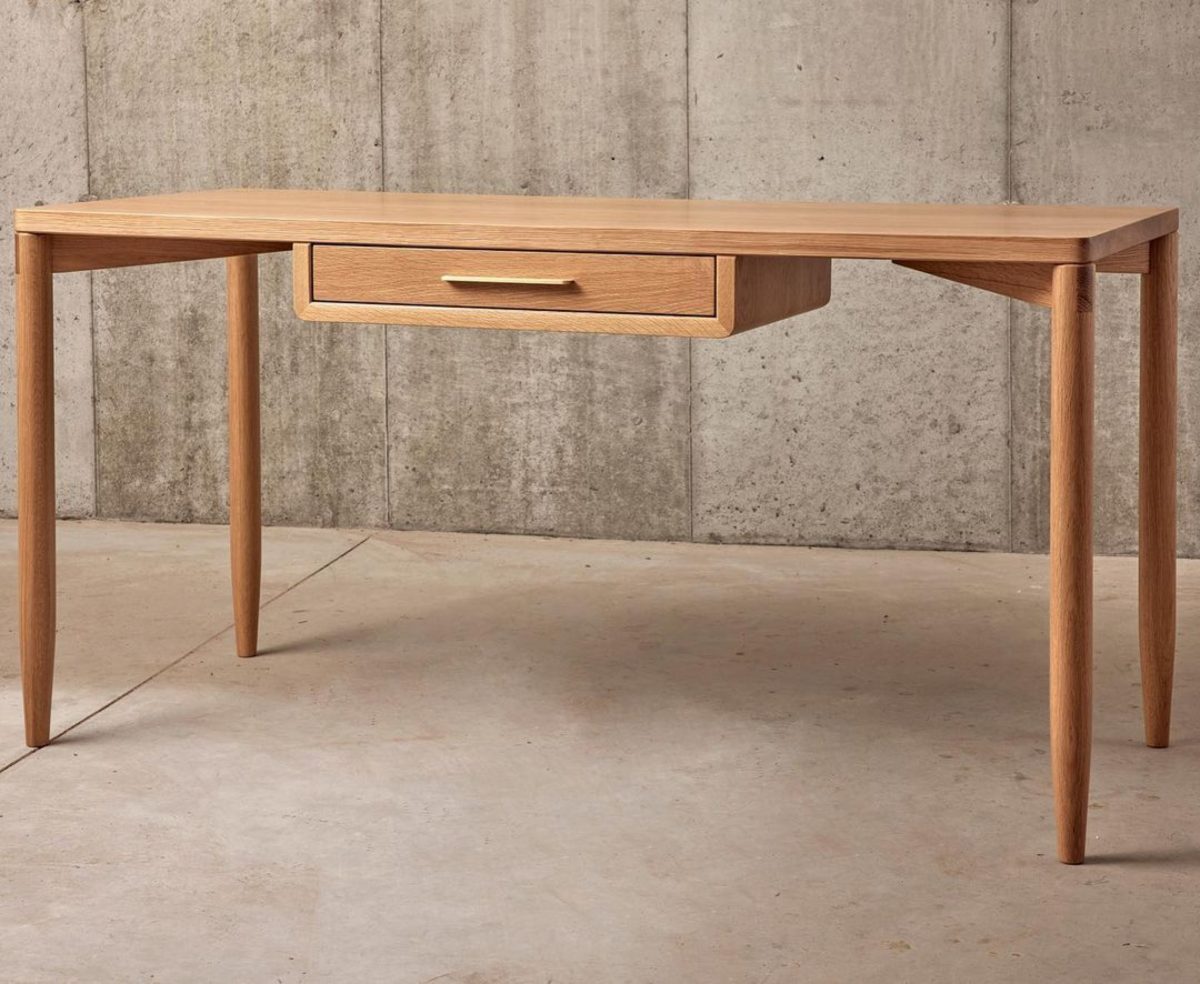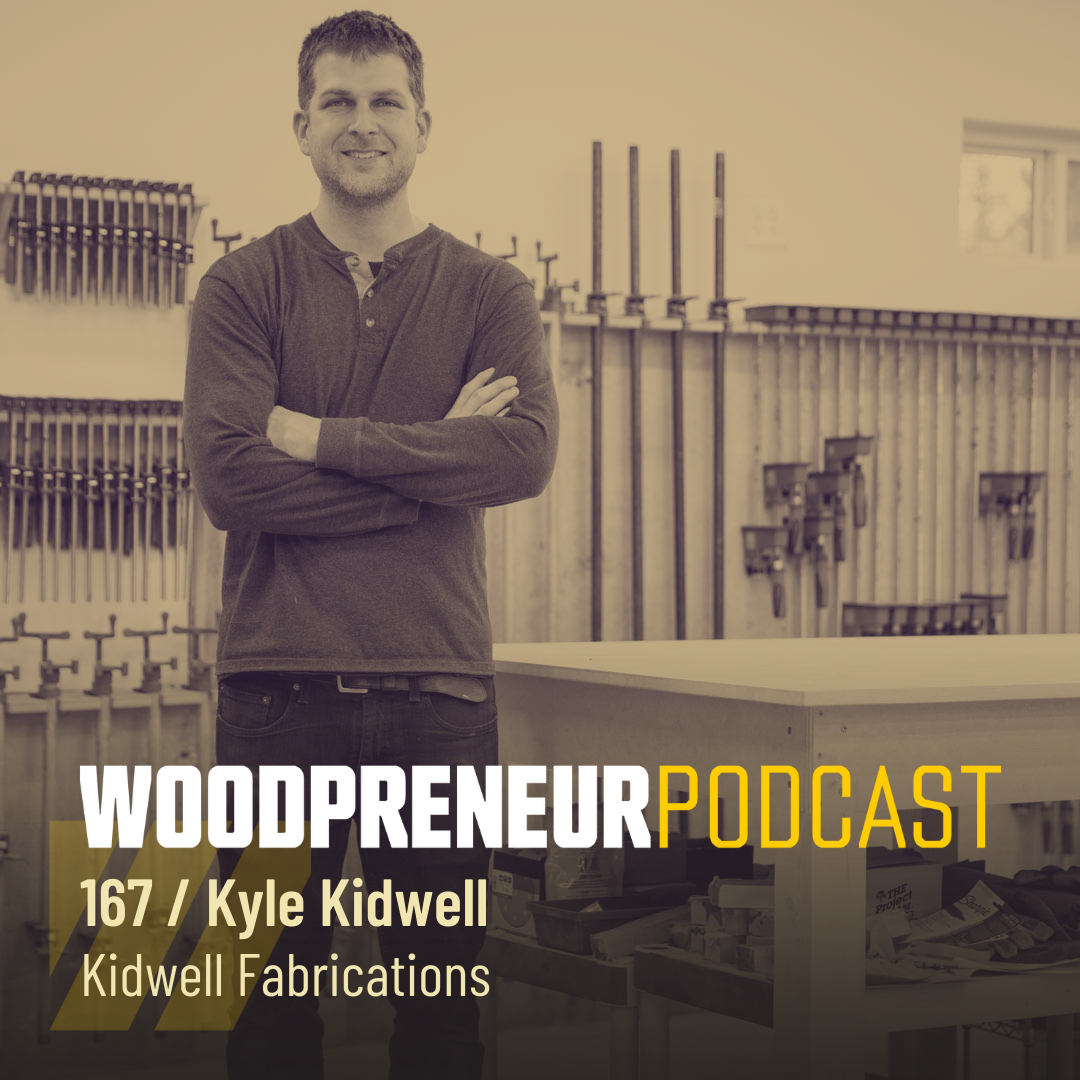Kyle Kidwell: Kidwell Fabrications
Hey everyone, welcome to another awesome episode of the Woodpreneur Podcast, today’s guest is Kyle Kidwell from Kidwell Fabrications. Kidwell Fabrications started in Fall 2017 and recently the focus has been more on fine furniture, custom designs, and small-batch signature collections.Why the Furniture Business?
Kyle got his start with tools working with his dad when he was in college. He did floor coverings and Kyle would work with him on summer and winter breaks, doing hardwood and vinyl and carpet. “That was my first taste of a table saw and a jigsaw, that’s also when I started making furniture on my own. It was pretty terrible at the time, but it was something that interested me even then.” Right out of college Kyle actually got into carpentry himself as well. A friend from college said “I’ve got a line of work. Do you want to partner to do carpentry?” Kyle decided to jump in and then in 2014 when he moved to Maine, he started working on carpentry in earnest. Kyle also worked at a frame shop for a while, which led him to an opportunity to work at the Guggenheim Museum. Kyle recalls that was the defining job he had in his New York chapter. He would install shows, so whatever the exhibit was, he was on the crew that would put the new show up and take the old show down. This job actually is part of the reason behind Kidwell Fabrications’ name. There was a department at the Guggenheim called the fabrication department. “My conception of that term at the time was [to think of] metalworking, like welding and stuff like that. I think that’s still most people’s conception of it is. But what I saw the department doing was crazy. They were just doing anything and everything.”
Creative Influences
So you’re doing carpentry, then you got to work at one of the best museums in the world, which helped define your aesthetic and your work, what made you come back to making and moving? Kyle says it was totally circumstantial. He had never been north of Massachusetts when he and his wife first started thinking about Maine. Having a shop space in New York is very difficult though and Kyle was getting the point he just needed out of the city. The pair moved and Kyle describes it as almost a false start as he didn’t have contacts or a shop ready to go, so he spent two years working for a major furniture company and he learned about CNC machines and how to use them. He then became a garage warrior, doing major side hustles in his spare time which allowed him to buy machines. Another interesting thing that Kyle learned from working at the furniture store was that their bread and butter is commercial work. He also noticed on the residential side it was almost all designers that specified pieces, so Kyle was able to learn early that designers as the lifespring of the work.
Smart Marketing Moves
When Kyle was first starting out he would reach out to designers via email and introduce himself and his company. He notes he definitely struck out with a lot, but he kept at it and realized that lead times and being able to offer a quicker turnaround, and being able to guarantee delivery on time promises as expected was what appealed to the clients he wanted to attract. Now he’s gone from one-off custom pieces to stunning small-batch furniture collections. Kyle thinks of it as a signature collection or signature piece where he really hammers out design and then puts effort into creating it and prototyping it before photographing it and making a few more. “With the signature designs, everything’s been figured out. You have your process, materials are already considered and everything is streamlined. One thing that I would say to anyone who’s trying to break into the world of your own designs, and signature pieces, is, I think you can’t be too precious with your work. Meaning you have to be willing to make it and put it out there, and live with the results of that, and know that you can keep moving forward.”

